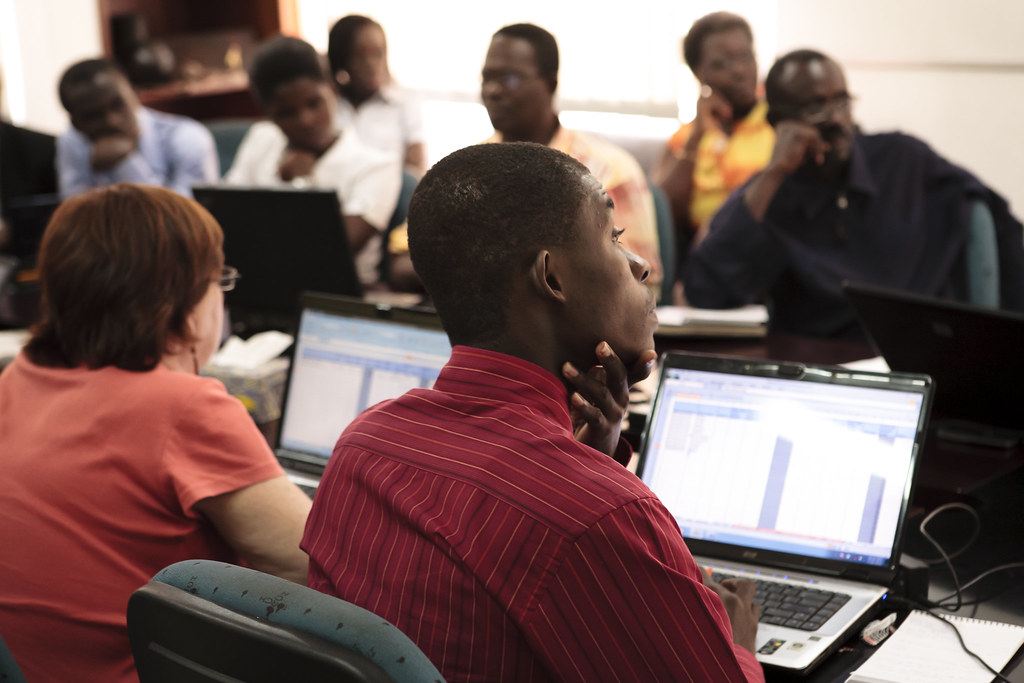AfDB approves €73m loan to boost jobs and skills for youth in Equatorial Guinea
At the heart of PARCH 1 is the construction of two modern provincial polytechnic institutes in Bioko Sur and Welé-Nzas.

- Country:
- Ivory Coast
The Board of Directors of the African Development Bank Group (AfDB) has approved a €73.27 million loan to support Equatorial Guinea’s Human Capital Development Project for Economic and Social Inclusion (PARCH 1). The five-year programme (2025–2030) seeks to address the country’s persistent skills gap, high youth unemployment, and limited private sector opportunities by investing in vocational education, entrepreneurship, and social inclusion.
Building a workforce for tomorrow
At the heart of PARCH 1 is the construction of two modern provincial polytechnic institutes in Bioko Sur and Welé-Nzas. These centres will deliver market-oriented training in high-growth sectors such as:
-
Agriculture and fisheries, which remain central to the country’s food security and export base.
-
Public works and infrastructure, to support national development and diversification.
-
Tourism, an underdeveloped sector with potential for job creation.
-
Digital technology, to help young people access opportunities in the global economy.
Training programmes will be designed in close collaboration with the private sector to ensure graduates are equipped with practical skills directly linked to labour market demand.
Employment and entrepreneurship targets
The AfDB expects PARCH 1 to deliver tangible results for Equatorial Guinea’s economy and workforce. According to Léandre Bassolé, AfDB Director General for Central Africa, the project aims to:
-
Create 4,500 jobs for youth and women.
-
Support 500 new businesses, most of them youth- and women-led.
-
Provide training and job placement opportunities for 1,935 beneficiaries.
By linking skills training to employment and entrepreneurship support, PARCH 1 aims to catalyse a more dynamic private sector-led growth model.
Tackling unemployment and skills mismatches
Equatorial Guinea currently faces a youth unemployment rate of 23.5 percent, with the rate among women even higher at 26.7 percent. Many young people are excluded from formal opportunities: around 16.5 percent of youth are unemployed, untrained, or out of school, leaving them reliant on the informal sector and vulnerable to poverty and social unrest.
The project is designed to correct structural weaknesses in the country’s technical and vocational education and training (TVET) system, which has historically received less than 2 percent of national resources. Chronic underfunding has hindered curriculum development, skills certification, and the integration of training into broader economic planning.
Three pillars of PARCH 1
The initiative will be implemented under three interconnected components:
-
Improving vocational training – by modernising curricula, aligning training with high-growth value chains, and building institutional capacity.
-
Promoting youth and women’s employment – through business incubation, access to finance, and improved entrepreneurial ecosystems.
-
Strengthening project management and partnerships – to ensure effective implementation, coordination, and sustainability.
Social and economic inclusion
The AfDB emphasises that PARCH 1 is not just about job creation, but also about fostering social cohesion. By targeting youth and women—groups most affected by unemployment and exclusion—the project seeks to strengthen economic participation and reduce inequalities across regions.
The initial focus on Bioko Sur and Welé-Nzas is intended to support more balanced territorial development, extending opportunities beyond the capital and better integrating rural populations into national growth strategies.
AfDB’s portfolio in Equatorial Guinea
As of 30 August 2025, the AfDB had an active portfolio of six projects worth €85 million in Equatorial Guinea. Current investments are concentrated in:
-
Agriculture and fisheries (65 percent).
-
Governance (34 percent).
-
ICT (0.69 percent).
-
Energy (0.55 percent).
PARCH 1 represents a strategic shift in the Bank’s engagement, placing greater emphasis on human capital development as a foundation for long-term economic diversification and resilience.
Unlocking potential for inclusive growth
With the approval of PARCH 1, the AfDB has reaffirmed its commitment to helping Equatorial Guinea harness its youthful population as an engine of growth and stability. By creating pathways for training, entrepreneurship, and employment, the project seeks to lay the groundwork for a more inclusive and competitive economy that can thrive beyond oil dependence.










